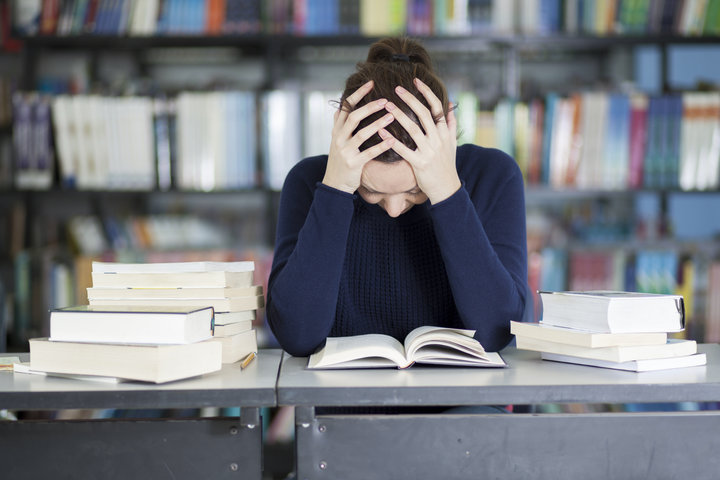Students are particularly sensitive to stress, which can have serious repercussions on their health and their studies. It is certain that many students are exposed to stress because they are in a period of their life marked by many upheavals. For the first time, those students have been attending online lectures for weeks and doing homework without getting in touch with other students. Due to social distancing, they cannot meet their colleagues and classmates to help with their work. With this guide, students can manage their stress during this pandemic lockdown and ensure their mental wellbeing.
5 Ways For Students To Manage Stress During Coronavirus Crisis
1. Give dignity to every aspect of the day
We bravely face a completely different daily routine and mostly slowed down by our usual. It seems important to underline small gestures and habits by giving them different spaces and times: the ritual of breakfast, the large and small ablutions, the care of our body, the reading of newspapers (without overexposing ourselves excessively to anxiety-provoking news), the coffee break, preparing meals, organizing the time to devote to a good movie or reading a book, as well as certainly working time. At this particular moment, each of these activities regains dignity and time.
2. Manage negative emotions
Perception of reality can change a lot when we experience negative emotions. For example, when we are agitated our perception of risk changes greatly. A good way to get rid of the load of emotions that understandably stir within us these days is to first recognize them for who I am (for example: I feel scared or I feel sad) and then try to let them go, without trying to solve them, check them or hide them. A practical tip is to try simple relaxation techniques (like focusing for 5-10 minutes on slow, regular breathing).
3. Apply digital minimalism
Never as in this period can a digital diet come in handy and take a moment to reflect on the value that social networks have for us. Being bombarded with information from morning to night because we compulsively look at the cell phone, more than reassuring us, it risks increasing the cognitive load and consequently the feeling of being constantly under pressure. You can use your gadgets to get help with essay writing but don’t get over-exposed to the news. Better to limit yourself to consult the official sources, avoid word of mouth and update yourself once or twice a day on the evolution of the situation.
4. Open your mind to others
Sharing some worries and fears is the best way to deal with the fears that can arise from the uncertainty and precariousness of these days. Often what is feared also frightens others. Without forgetting that all the emotions we feel and the reactions we have at the moment are conditioned by the particular situation in which we find ourselves and therefore are often amplified by the limitation of personal freedom. Taking this into account and becoming aware of this, it is possible to read these emotions from a new perspective and take the right distance.
5. Don’t forget about physical activity
One aspect not to forget, especially when exits and physical movement are limited to a minimum, is the importance of physical activity. There are countless studies that show how motion has benefits on our ability to focus, on mood, sleep and in general on psychological well-being, helping to release tension, freeing endorphins, and shifting attention from brooding to bodily sensations. Even the health institutions suggest to focus on the physical activity to manage your stress.
6. Work from home
For those who continue to work from home, it is important to organize their day with limits and routines. Separate working and home environments as much as possible, keep defined hours, take care of yourself as if you were preparing for any day (nothing is more harmful than the effect of the tracksuit effect all day). Take advantage of it to replace the sandwich eaten at lunch in full speed with a healthy and balanced meal.
7. Try to learn new habits
Having abandoned our usual and often crowded routine, we now discover that we have time to do new things or to devote ourselves to small activities that we have forgotten or delayed. For instance, you can follow your passion to read a book, play music, do painting or watch movies. Good practice says to leave a notebook and a pen near the bed in order to transcribe the dreams as soon as you wake up, thus managing to recover more details and nuances.
8. Strive to find the positive side
Finally we have all the time that we claim every day to do this or that, yet we complain not knowing what to do with it. We learn to organize our day, however, giving it a meaning and a purpose, transforming it into an opportunity to discover what we care about most.
In a society that has lost sight of today, focusing on deadlines to meet and appointments to plan, we must learn to accept that we can stop and put off. You can follow the above steps to maintain a good life balance at home and also fight bad grades and shine as a good student. So we take this opportunity to reflect on the occasion we have of being able to stay at home and we really thank all those who cannot stay at home. Because they are sick, because they are committed to saving lives, or dedicated to cultivating, producing and selling food and goods essential to all of us.


